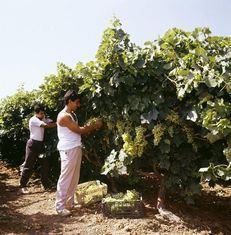
Reconstructing and recovering the war damages to the agricultural infrastructure in Israel’s war-damaged northern region will require from three-to-five years, according to minister of agriculture Shalom Simhon.
The direct and indirect costs incurred in that region amount so far to NIS500 million (£60m), said Simhon, who added that the Israeli-Lebanese war has so far deprived farmers in 150 settlements in the Western, Upper and Lower Galilee regions, of any income “at a critical time when farmers have to pick the fruits…in the main crops in plantations in the Galilee and the Golan Heights.”
Plantations of nectarines, plums, lychee, and partly banana and avocado crops have been damaged.
Amos Orr, general manager of Agrexco UK, has, however, been reassuring customers that supplies to the UK will continue to meet programmes. He said: “Every day we are hearing more news about what is happening on the borders between Israel and Lebanon and naturally customers are asking the question - ‘what will be the effect on supply, not only now, but for the coming season?’ I would like to reassure those who have asked the question, and equally those who might not have voiced it, supplies will continue as planned and we will fulfil programmes set.
“The last thing I want to do is to appear blasé but to give confidence to our customers we need to explain that we have thousands of growers throughout Israel, from the Lebanese border down to Eilat. News is obviously focussed on the north but again we can confirm that nothing has affected the yield, the packhouses and the supply.”
The August 10 vessel, added Orr, left with a volume of dates, plums and figs that exceeded pre-programmed orders. He added: “Our ports are open and functioning as normal; exports have not been affected by the hostilities. Israel has been through major wars during the last 60 years and has always maintained its supply situation.
“This war is localised and agricultural work continues on a normal basis. We have worked hard to establish good relationships between our growers and customers and invested heavily in our logistical structure. All involved understand the importance of a continued reliable supply of product and this is what we continue to strive for.”



